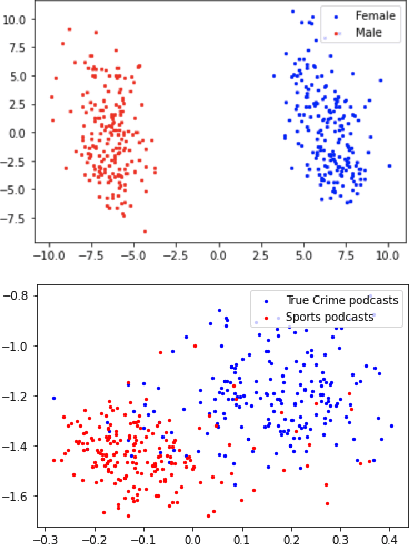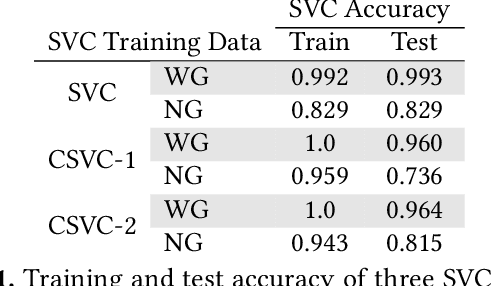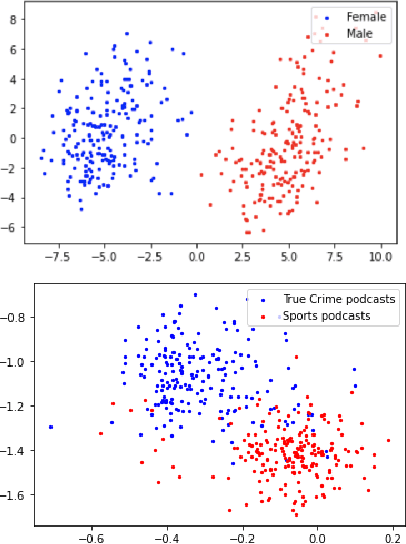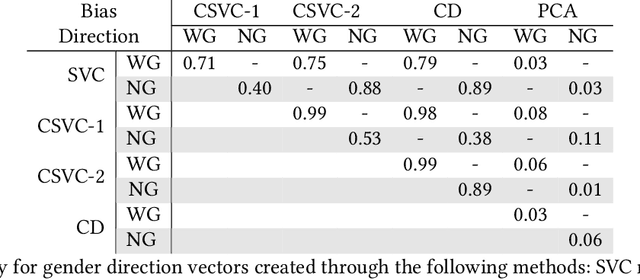Praveen Ravichandran
Evaluation Framework for Understanding Sensitive Attribute Association Bias in Latent Factor Recommendation Algorithms
Oct 30, 2023



Abstract:We present a novel evaluation framework for representation bias in latent factor recommendation (LFR) algorithms. Our framework introduces the concept of attribute association bias in recommendations allowing practitioners to explore how recommendation systems can introduce or amplify stakeholder representation harm. Attribute association bias (AAB) occurs when sensitive attributes become semantically captured or entangled in the trained recommendation latent space. This bias can result in the recommender reinforcing harmful stereotypes, which may result in downstream representation harms to system consumer and provider stakeholders. LFR models are at risk of experiencing AAB due to their ability to entangle explicit and implicit attributes into the trained latent space. Understanding this phenomenon is essential due to the increasingly common use of entity vectors as attributes in downstream components in hybrid industry recommendation systems. We provide practitioners with a framework for executing disaggregated evaluations of AAB within broader algorithmic auditing frameworks. Inspired by research in natural language processing (NLP) observing gender bias in word embeddings, our framework introduces AAB evaluation methods specifically for recommendation entity vectors. We present four evaluation strategies for sensitive AAB in LFR models: attribute bias directions, attribute association bias metrics, classification for explaining bias, and latent space visualization. We demonstrate the utility of our framework by evaluating user gender AAB regarding podcast genres with an industry case study of a production-level DNN recommendation model. We uncover significant levels of user gender AAB when user gender is used and removed as a model feature during training, pointing to the potential for systematic bias in LFR model outputs.
 Add to Chrome
Add to Chrome Add to Firefox
Add to Firefox Add to Edge
Add to Edge